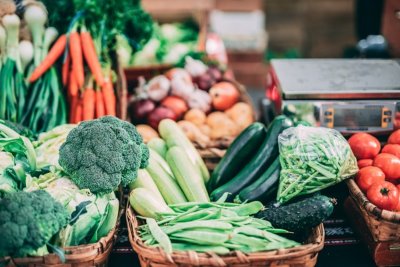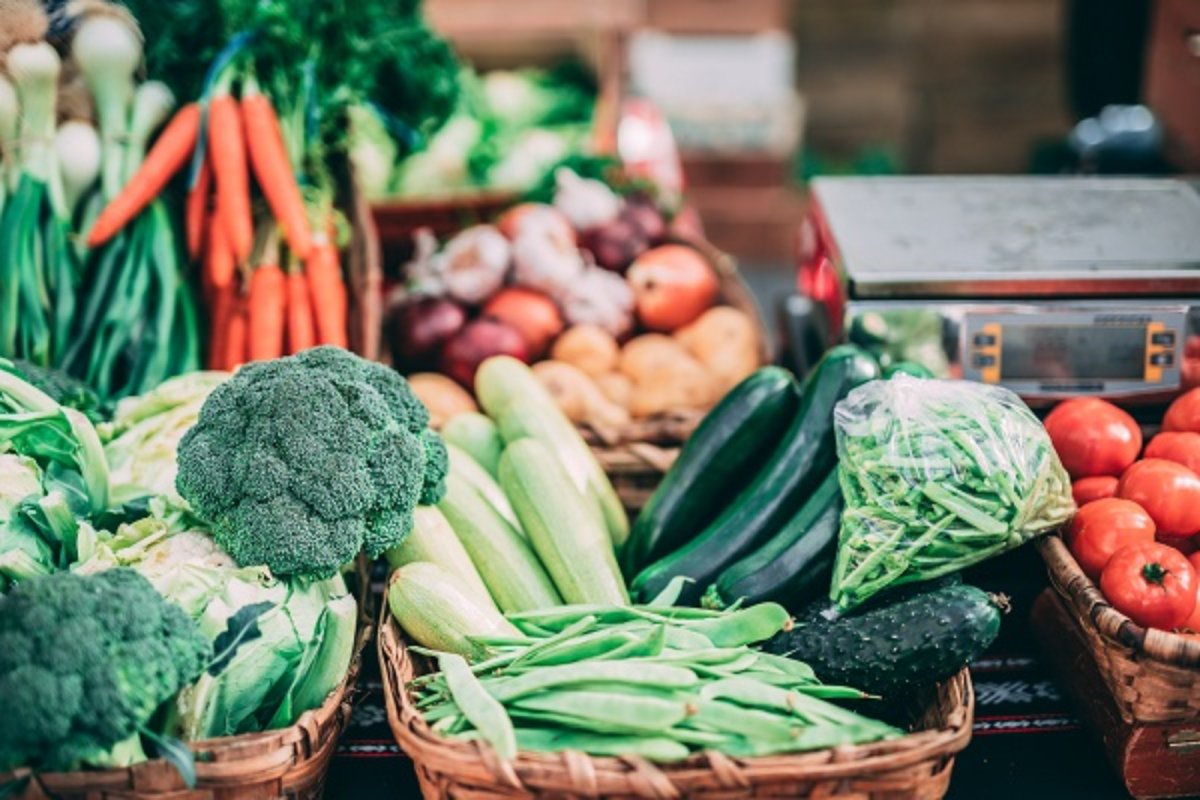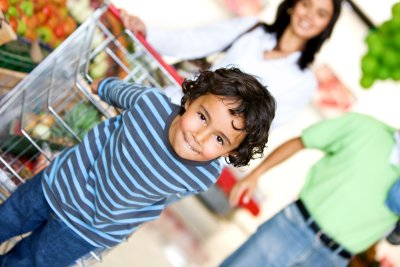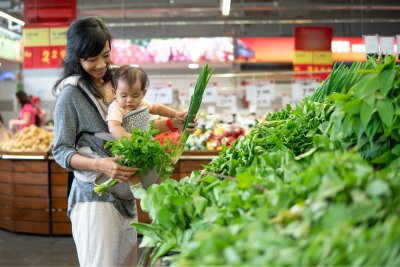 Indigo de la Maza unsplash
Indigo de la Maza unsplash
Most people do not manage to eat five portions of fruit and vegetables each day. To challenge this, Sainsbury’s applied three behavioural levers to lead shoppers to buy more fruit and vegetables.
Incentivisation
37% of consumers say that cost is a barrier to them eating a healthy, sustainable diet. Sainsbury’s reduced the price of various fruits and vegetables to 60p for four weeks in January 2020 and again in January 2021, in 101 stores across the country.
Placement
Using prominent store spaces e.g gondola ends generally increases impulse sales in less healthy categories. This campaign gave prominent placement to promoted fruit and vegetables.
Signposting
Health is the biggest driver for changing diets, and taste can be a barrier. The campaign used bright, visually appealing colours and taste cues to champion the health credentials of fruit and vegetables, making them look tasty and exciting.
Key findings
1. Sales of promoted fruit and vegetable portions increased by 78%
Looking across three years, the 60p fruit and vegetable intervention created a significant short-term sales uplift. In fact, price reductions to 60p led to a 78% uplift on promoted products in 2020 and 56% during the January 2021 Covid-19 national lockdown, compared to the baseline year. Whilst January is already associated with people prioritising their health, we can see from 2019 baseline data that this intervention contributes to sales far above the expected seasonal increase.
2. Healthier shoppers were more engaged
35% of regular Sainsbury’s shoppers engaged with the trial and purchased a promoted item on 14% of their visits. A common challenge when trying to shift behaviour is that health campaigns often appeal most to shoppers who are already managing to eat more healthily. During this trial, shoppers who engaged with the promotions were already purchasing 6% more fruit and vegetables and less discretionary items than the average shopper.
This intervention took place within the fruit and vegetable section of the store, therefore reaching those who already browse this space. Using alternative placement to interrupt shoppers throughout the store could encourage shoppers to try new fruits or vegetables for the first time. Replicating this intervention outside of the month of January would also be interesting.
3. Diets shifted towards the Eatwell Guide, and some behaviour was sustained
During both trials, engaged shoppers purchased more fruits and vegetables and less discretionary foods as a proportion: 10% uplift in fruits and vegetables in 2020 and 6% in 2021 6% decrease in discretionary items in 2020, 4% in 2021. Generally, shoppers bought the promoted fruits and vegetables as additional items, rather than just switching to the cheaper fruits and vegetables.
After running the trial twice, a small but sustained behaviour change was seen for four weeks. Engaged shoppers bought more fruits and vegetables after the trial in 2021. This appears to have increased the amount of fibre in baskets. To meet government recommendations, the UK needs to boost fibre intakes by over 60% so this is a positive outcome.
Read the full report and recommendations to industry on the IGD website
Veg Cities: We need your help to get your city or local area growing, cooking, selling and saving more vegetables.
Sustain
The Green House
244-254 Cambridge Heath Road
London E2 9DA
020 3559 6777
sustain@sustainweb.org
Sustain advocates food and agriculture policies and practices that enhance the health and welfare of people and animals, improve the working and living environment, promote equity and enrich society and culture.
© Sustain 2024
Registered charity (no. 1018643)
Data privacy & cookies
Icons by Icons8








